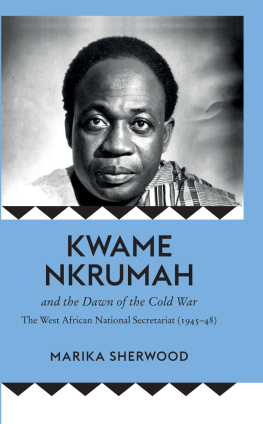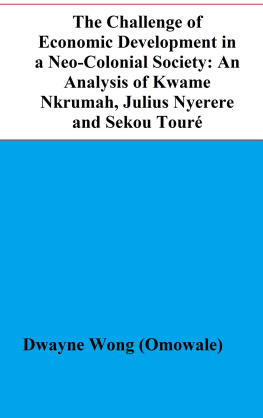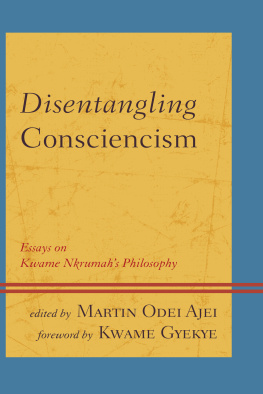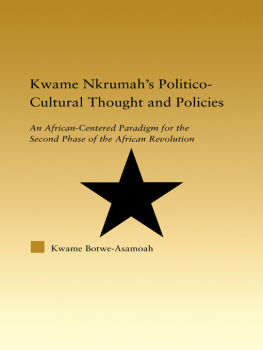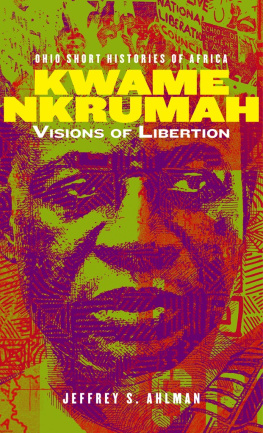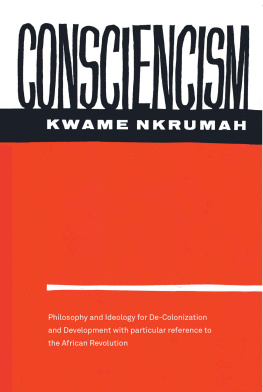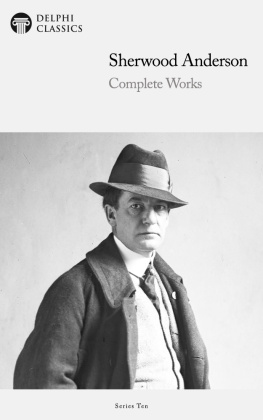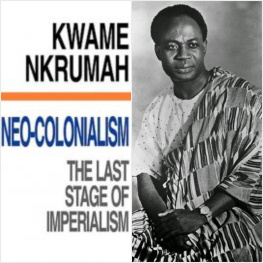Contents
Guide
Kwame Nkrumah and the Dawn of the Cold War
Kwame Nkrumah and the Dawn of the Cold War
The West African National Secretariat, 194548
Marika Sherwood

First published 2019 by Pluto Press
345 Archway Road, London N6 5AA
www.plutobooks.com
Copyright Marika Sherwood 2019
The right of Marika Sherwood to be identified as the author of this work has been asserted by her in accordance with the Copyright, Designs and Patents Act 1988.
British Library Cataloguing in Publication Data
A catalogue record for this book is available from the British Library
ISBN 978 0 7453 3891 0 Hardback
ISBN 978 1 7868 0420 4 PDF eBook
ISBN 978 1 7868 0476 1 Kindle eBook
ISBN 978 1 7868 0475 4 EPUB eBook
This book is printed on paper suitable for recycling and made from fully managed and sustained forest sources. Logging, pulping and manufacturing processes are expected to conform to the environmental standards of the country of origin.
Typeset by Stanford DTP Services, Northampton, England
Simultaneously printed in the United Kingdom and United States of America
This book is dedicated to the many people who welcomed me, hosted me, found archives for me, and taught me so much during my many travels around Ghana.
Thank you, thank you!
Contents
Introduction
Todays African Union is the descendant of the Organisation of African Unity (OAU) formed in 1963. Among the OAUs founders was Kwame Nkrumah. Nkrumah began to advocate this unity as a student in the USA, from 1935 to 1945. He then migrated to England and helped organise the Pan-African Congress in October 1945. West Africans attending recognised the need to form a new organisation to achieve unity and independence. So some went to Paris to discuss this with African activists there. They decided to form the West African National Secretariat (WANS) as the complete and absolute independence for the Peoples of West Africa is the only solution to the existing problems facing Africans and could only be achieved by working together by unity. WANSs campaign for unity (and much else) began in February 1946 and ended in 1948.
The solidarity of the World War II Allies fractured once the Axis powers (Germany and its allies) were beaten. The West became very fearful of the expansion of their ally, the USSR, as it now controlled the East European countries it had freed from the Germans. The West was also hugely fearful of the spread of communist philosophy i.e., that of the USSR, which challenged their capitalism. So a new war was begun, which came to be known as the Cold War. That is, a war fought not with bombs and guns, but with propaganda, education, restrictive laws, manipulations, control of the press and the intelligence services such as MI5 and the Central Intelligence Agency (CIA). Many of the Allies were the owners of colonies so their fear of the spread of communism extended around the world. The USA now wanted access on its own terms to the markets and raw materials in the European-owned colonies.
This small book on the work of WANS sets it in the context of the political world of the 1940s. It explores how Africa fits into the Allies plans for the world. It outlines the relationship between the colonial masters and with the USA. And their attitudes towards the USSR.
The immediate post-war years were the beginning (in some areas the expansion) of the struggles by colonised peoples for their independence. Did they know that they were now fighting not only their own colonial masters? And that those masters were working together and with the USA against them? As this is a huge topic, this small book will focus on the Gold Coast, with some account of events in Nigeria.
George Padmore described the situation in 1948, after the riots in the Gold Coast:
Alarmed by the rapid growth of nationalism in Africa and other parts of the British colonial empire, the Colonial Office has been inspiring a campaign designed to brand organisations such as the National Council of Nigeria and the Cameroons (NCNC), the Nigerian Youth Movement, the United Gold Coast Convention (UGCC) and the West Africa Youth League as Communist controlled and therefore should be suppressed
The Under-Secretary of State for the Colonies told the House of Commons that the recent riots and shootings on the Gold Coast were instigated by African Communists to drive the British out
The campaign is linked with the Truman Doctrine of using African raw materials and man-power to contain Soviet Russia, and in the event of war turning Africa into strategic bases.
Here I am only giving outlines of this history, and only to what I think was the beginning of the Cold War in Africa in 1948. Full accounts (even just of the Gold Coast) would fill many books. I did not have access to all the West African newspapers and archives while researching WANS. It is important to emphasise that the British government has still not released all the archives on WANS and anti-colonial/pro-independence activists, even for 19458. One of my requests for the release of some files, in 2016, prompted the following response: [W]e have decided that this information should be withheld Section 27(2) of the Act exempts
Some readers might find the quotations from newspapers somewhat repetitive. My aim is for readers to see how widely the philosophy and aims of WANS was recognised and supported. And thus what a threat it was to Western supremacy.
__________________________
See, e.g., Marika Sherwood, Kwame Nkrumah: The Years Abroad, Legon: Freedom Publications, 1996, chapters 9 and 10, and also Sherwood, The African Students Association of America and Canada, 19411945, Lagos Historical Review, issue 14, 2015.
Chicago Defender, 15/5/1948, p.15. On Padmore see the very recent book by Leslie James, George Padmore and Decolonization from Below: Pan-Africanism, the Cold War, and the End of Empire, Basingstoke: Palgrave Macmillan, 2015.
I could give dozens of examples. The date of my request was 28 April 2016.
1
The Relevant World, 19405
To understand what was faced by those who furthered the struggle for freedom and independence when World War II ended, it is essential to look at the most relevant political issues during these years.
Initially during World War II the Allies opposed to Germany were Britain, Belgium, Greece, the Netherlands, Yugoslavia and the USSR, the only communist country. France was an Ally until it was occupied/conquered by Germany in 1940; it then became known as Vichy France. General Charles de Gaulle fled from France and formed a government in exile. The USA joined the war on the side of the Allies when it was attacked by Japan in December 1941. Germany led the Axis powers, which by 1941 consisted of Bulgaria, Hungary, Italy, Japan, Romania and Slovakia.
World War II and British West Africa
The British were fearful that the neighbouring French-owned colonies would support Vichy France and Germany. The Royal West African Frontier Force (RWAFF) was enlarged to protect British possessions, and also to fight against the Axis powers in Italian-controlled Somaliland and Abyssinia. When the French colonies in West Africa were freed from Vichy domination, the RWAFFs 81st and 82nd West African Divisions (from Gambia, Nigeria, Sierra Leone and the Gold Coast) were moved to fight against the Japanese in Burma. En route, and then while awaiting repatriation, they spent some time in India, where they became acquainted with Indias campaign for independence from its British masters.

